
Jungfrau Region: The Alpine Wonderland
Nestled in the heart of the Swiss Alps, the Jungfrau Region is a breathtaking destination that offers unparalleled natural beauty and a mix of adventure and relaxation. The region is named after the Jungfrau mountain, one of the main summits in the Bernese Alps. Towering at 4,158 meters, it provides a stunning backdrop to the picturesque villages and lush valleys below. Visitors can explore charming villages like Grindelwald, Lauterbrunnen, and Wengen, each offering its own unique charm and activities. From hiking trails that wind through verdant meadows to cable car rides providing panoramic views of snow-capped peaks, the Jungfrau Region is an outdoor enthusiast's paradise. In winter, it transforms into a snowy wonderland perfect for skiing, snowboarding, and other winter sports. One of the highlights of the region is the Jungfraujoch, often referred to as the 'Top of Europe.' Accessible by a cogwheel train, it is the highest railway station in Europe at 3,454 meters. From here, visitors can enjoy stunning views of the Aletsch Glacier, the longest glacier in the Alps, and the surrounding peaks. The Ice Palace and the Sphinx Observatory are must-visit attractions at Jungfraujoch, offering an unforgettable experience of the high Alps. Whether you are seeking adventure, relaxation, or simply want to soak in the beauty of the Swiss Alps, the Jungfrau Region has something to offer for everyone. Its pristine landscapes, charming villages, and diverse activities make it a perfect destination for a memorable holiday.
Local tips in Jungfrau Region
- Visit during the shoulder seasons (spring and fall) for fewer crowds and pleasant weather.
- Purchase a Jungfrau Travel Pass for unlimited access to local trains, cable cars, and mountain railways.
- Pack layers and waterproof gear as the weather in the Alps can be unpredictable.
- Book accommodation in advance, especially during peak seasons to ensure availability.
- Try local Swiss cuisine such as fondue, rösti, and alpine cheeses in the mountain villages.
Jungfrau Region: The Alpine Wonderland
Nestled in the heart of the Swiss Alps, the Jungfrau Region is a breathtaking destination that offers unparalleled natural beauty and a mix of adventure and relaxation. The region is named after the Jungfrau mountain, one of the main summits in the Bernese Alps. Towering at 4,158 meters, it provides a stunning backdrop to the picturesque villages and lush valleys below. Visitors can explore charming villages like Grindelwald, Lauterbrunnen, and Wengen, each offering its own unique charm and activities. From hiking trails that wind through verdant meadows to cable car rides providing panoramic views of snow-capped peaks, the Jungfrau Region is an outdoor enthusiast's paradise. In winter, it transforms into a snowy wonderland perfect for skiing, snowboarding, and other winter sports. One of the highlights of the region is the Jungfraujoch, often referred to as the 'Top of Europe.' Accessible by a cogwheel train, it is the highest railway station in Europe at 3,454 meters. From here, visitors can enjoy stunning views of the Aletsch Glacier, the longest glacier in the Alps, and the surrounding peaks. The Ice Palace and the Sphinx Observatory are must-visit attractions at Jungfraujoch, offering an unforgettable experience of the high Alps. Whether you are seeking adventure, relaxation, or simply want to soak in the beauty of the Swiss Alps, the Jungfrau Region has something to offer for everyone. Its pristine landscapes, charming villages, and diverse activities make it a perfect destination for a memorable holiday.
When is the best time to go to Jungfrau Region?
Iconic landmarks you can’t miss
Jungfraujoch Sphinx Observatory
Experience the breathtaking heights of the Jungfraujoch Sphinx Observatory, the 'Top of Europe', and discover the wonders of the Swiss Alps.
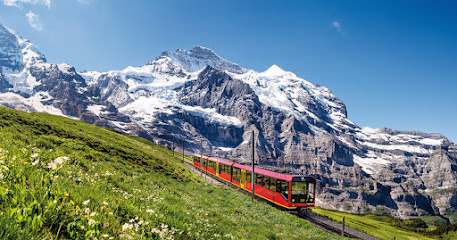
Thrill Walk, Birg
Experience unparalleled panoramic views and exhilarating heights at the Thrill Walk, Birg, a top tourist attraction in the Swiss Alps.
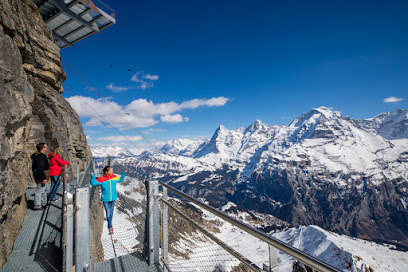
Jungfraujoch
Experience the breathtaking beauty of Jungfraujoch, the Top of Europe, where majestic peaks and stunning glaciers await you in the Swiss Alps.
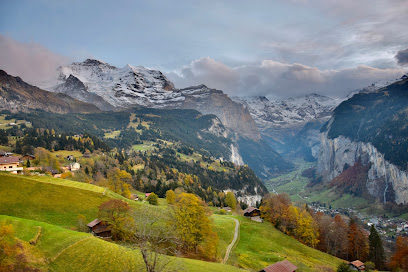
Jungfrau
Experience the breathtaking beauty and adventure of Jungfrau, the majestic mountain peak in the Swiss Alps, perfect for outdoor activities year-round.
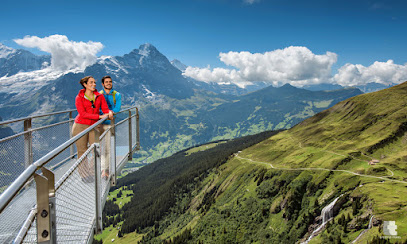
JungfrauPark Interlaken
Discover the magic of JungfrauPark Interlaken, a family-friendly amusement center brimming with excitement and Swiss charm.
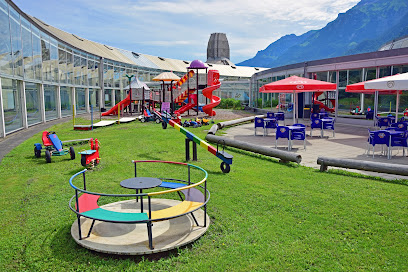
Männlichen
Experience breathtaking views and thrilling outdoor adventures at Männlichen, a stunning mountain peak in the Swiss Alps near Grindelwald.
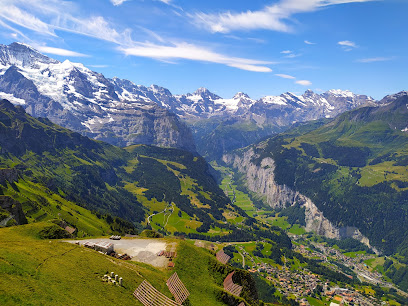
Jungfrau Ski Region - Kleine Scheidegg - Männlichen - Wengen
Explore the breathtaking Jungfrau Ski Region, a winter paradise in the Swiss Alps offering diverse slopes, stunning views, and charming alpine culture.
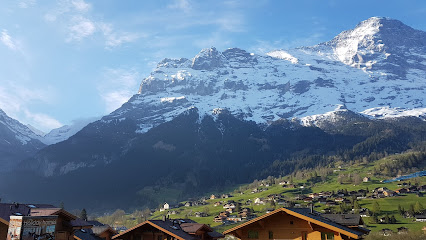
Jungfrau-Aletsch-Bietschhorn
Discover the breathtaking beauty of Jungfrau-Aletsch-Bietschhorn, a UNESCO World Heritage site showcasing stunning glaciers and diverse alpine ecosystems.
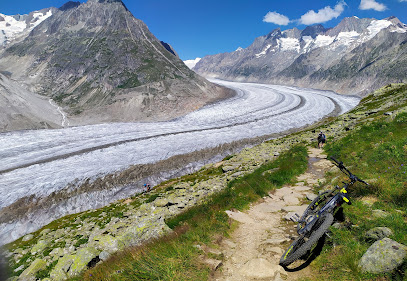
First Cliff Walk
Discover the exhilarating First Cliff Walk in Grindelwald, Switzerland, where breathtaking views and thrilling adventures await in the Swiss Alps.
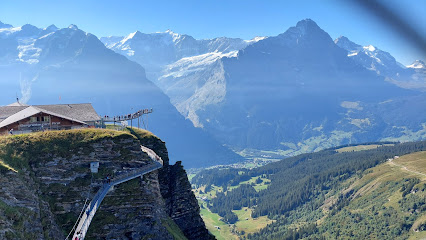
Royal walk
Discover the Royal Walk in Wengen, Switzerland - a breathtaking hiking trail offering stunning views of the Jungfrau region and serene alpine landscapes.
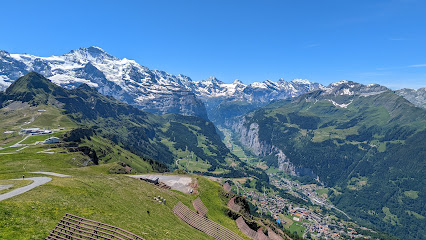
Jungfraujoch Plateau
Discover the breathtaking beauty of Jungfraujoch Plateau, the Top of Europe, where adventure awaits amidst stunning alpine landscapes.
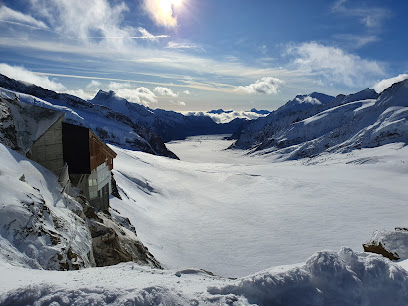
Ice Palace Jungfraujoch
Experience the breathtaking Ice Palace at Jungfraujoch, where artistic ice sculptures meet stunning alpine views in the heart of Switzerland.
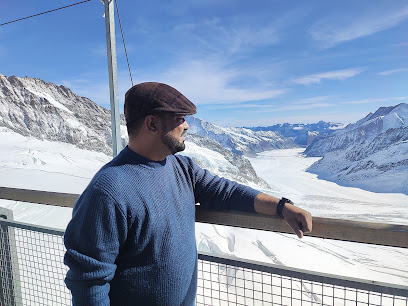
Jungfrau Region Tourism
Explore the enchanting Jungfrau Region: A Swiss paradise of stunning peaks, thrilling adventures, and rich cultural experiences awaiting every traveler.
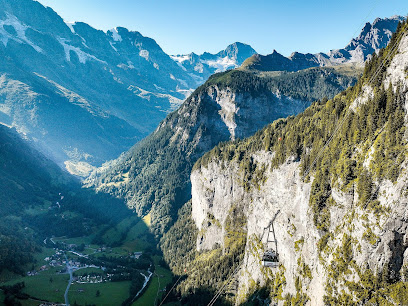
TOURISMUSEUM
Unveil the captivating local history and culture at the Tourismuseum in Unterseen, a must-visit for all curious travelers and history enthusiasts.
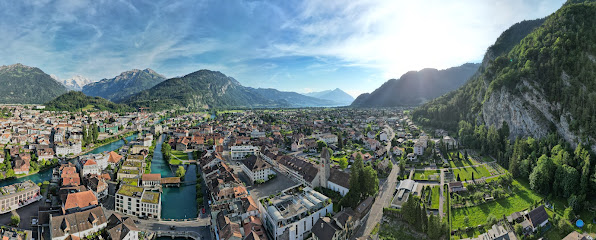
Jungfrau mit Eiger und Mönch-Aletschgletscher-Bietschhorn
Experience breathtaking views of Eiger, Mönch, and Aletsch Glacier at the Jungfrau Observation Deck, a must-visit destination in the Swiss Alps.
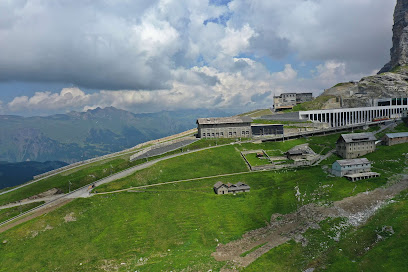
Unmissable attractions to see
Jungfraujoch
Explore Jungfraujoch, the stunning 'Top of Europe,' offering breathtaking views, thrilling adventures, and unforgettable experiences in the Swiss Alps.
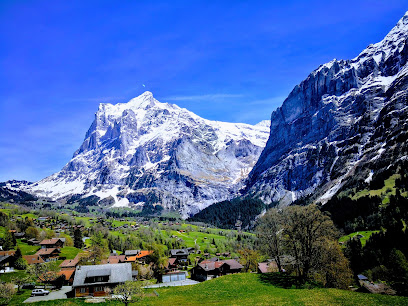
Trümmelbach Falls
Experience the breathtaking beauty of Trümmelbach Falls, where nature's power cascades through the Swiss Alps in a stunning display.
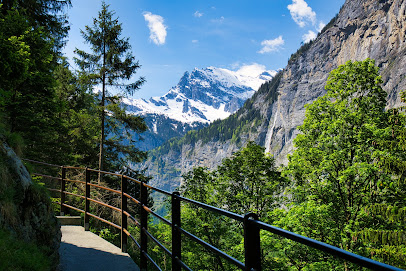
Höhematte
Discover Höhematte, a breathtaking park in Interlaken offering stunning mountain views, vibrant green spaces, and outdoor adventures in the heart of Switzerland.
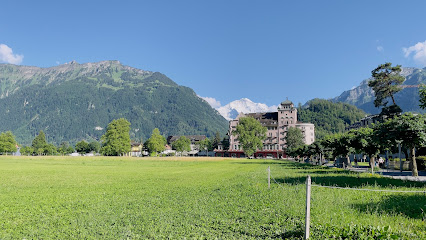
Staubbachfall Waterfall
Experience the awe-inspiring beauty of Staubbachfall Waterfall in Lauterbrunnen, a breathtaking natural wonder in the heart of the Swiss Alps.
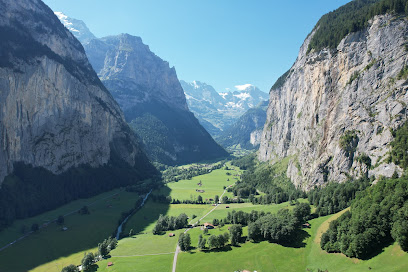
Thrill Walk, Birg
Discover breathtaking views and thrilling heights at the Thrill Walk in Birg, a must-see alpine attraction in Switzerland.
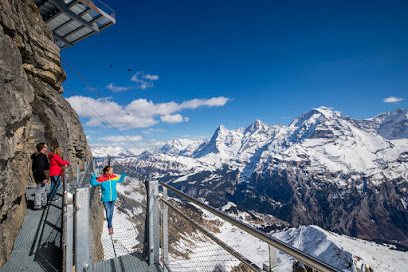
Schloss Oberhofen
Experience the timeless beauty and historical significance of Schloss Oberhofen, a captivating castle on the shores of Lake Thun in Switzerland.
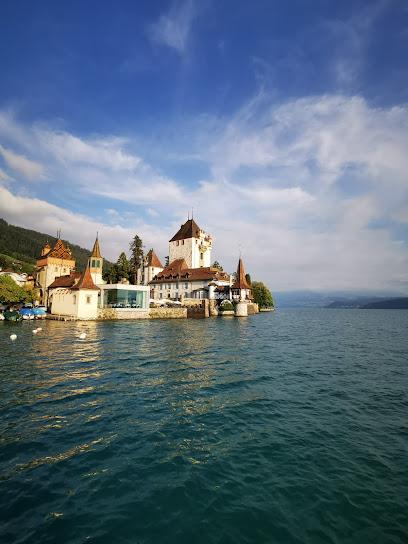
OUTDOOR - Glacier Canyon Grindelwald
Explore the breathtaking Glacier Canyon in Grindelwald - a natural wonder offering thrilling adventures and stunning views in the Swiss Alps.
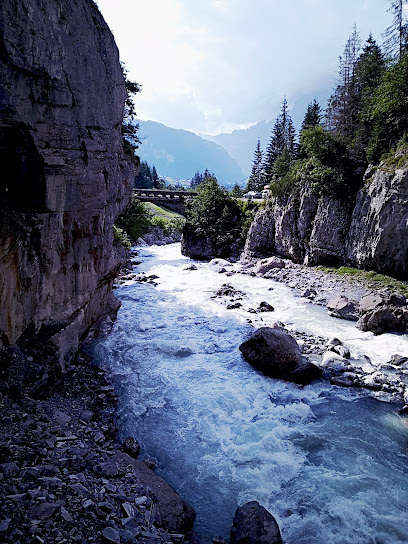
Jungfrau
Experience the breathtaking beauty of Jungfrau, a majestic mountain peak in the Swiss Alps, perfect for adventure and nature lovers alike.
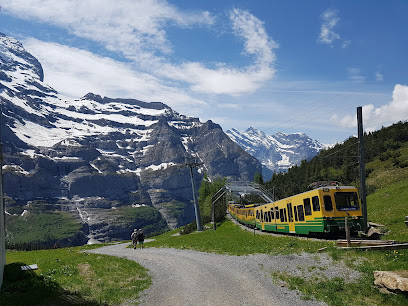
JungfrauPark Interlaken
Explore the magic of JungfrauPark Interlaken, where adventure and stunning alpine scenery meet for an unforgettable family experience.

First Flyer
Experience the breathtaking thrill of the First Flyer in Grindelwald, soaring through the Swiss Alps with stunning views and exhilarating speeds.
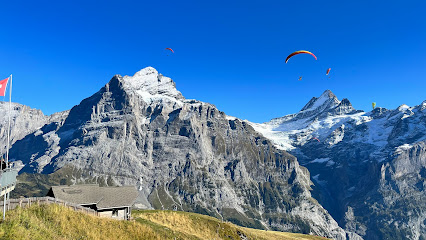
Bachalpsee
Explore the breathtaking beauty of Bachalpsee, a serene alpine lake in Switzerland, perfect for hiking and photography amidst stunning mountain views.
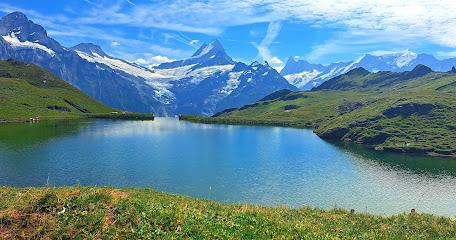
Jungfrau Ski Region - Kleine Scheidegg - Männlichen - Wengen
Experience the exhilarating slopes and breathtaking views of the Jungfrau Ski Region, a top winter destination in the Swiss Alps.
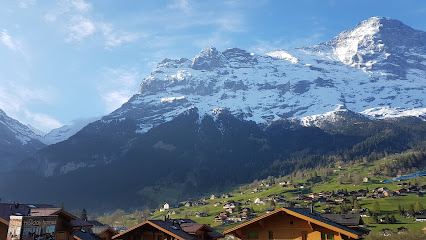
Jungfrau-Aletsch-Bietschhorn
Explore the breathtaking beauty of Jungfrau-Aletsch-Bietschhorn, a UNESCO World Heritage site in the Swiss Alps, perfect for nature lovers and adventure seekers.
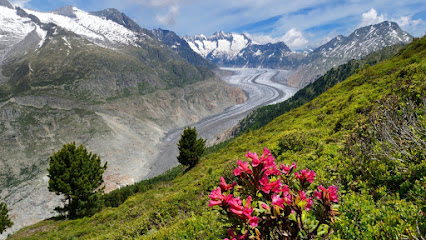
Staubbachfall Viewpoint
Experience the majestic beauty of Staubbachfall Viewpoint, where stunning waterfalls meet breathtaking Swiss landscapes in Lauterbrunnen Valley.
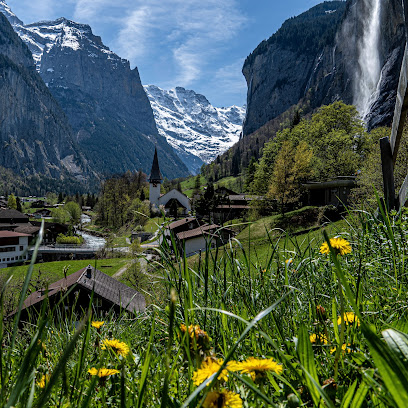
Wild Park
Experience the serenity of nature at the Alpine Wild Park in Interlaken, where Swiss wildlife thrives amidst stunning mountain views.
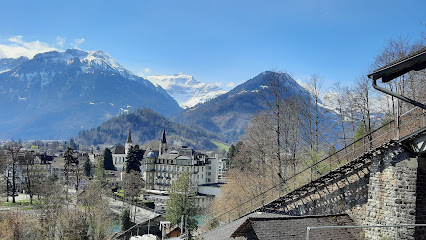
Essential places to dine
Berggasthaus First
Discover the breathtaking beauty and exquisite flavors of Switzerland at Berggasthaus First - where culinary excellence meets stunning alpine views.
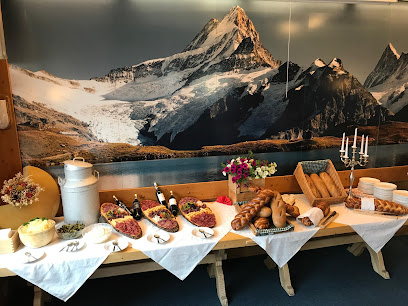
Restaurant Weidstübli
Experience authentic Swiss cuisine in Lauterbrunnen's stunning setting at Restaurant Weidstübli - A true taste of tradition!
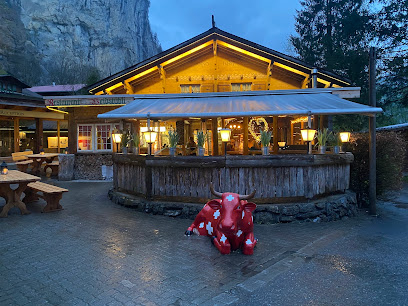
Schilthorn - Piz Gloria 360°- Restaurant
Experience breathtaking views and authentic Swiss cuisine at Schilthorn - Piz Gloria, an alpine gem offering unforgettable dining above the clouds.
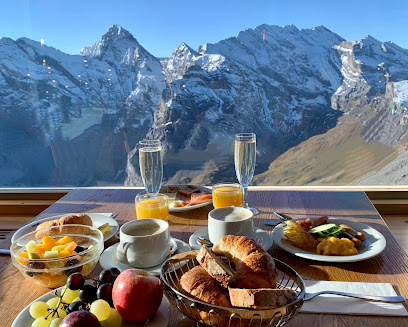
Bergrestaurant Kleine Scheidegg
Experience exquisite Swiss cuisine at Bergrestaurant Kleine Scheidegg with breathtaking views of the Jungfrau mountains.
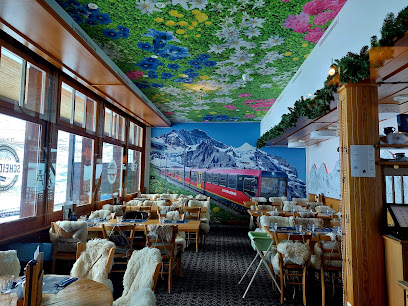
Restaurant Eigernordwand
Experience authentic Swiss cuisine amidst breathtaking mountain views at Restaurant Eigernordwand in Kleine Scheidegg.
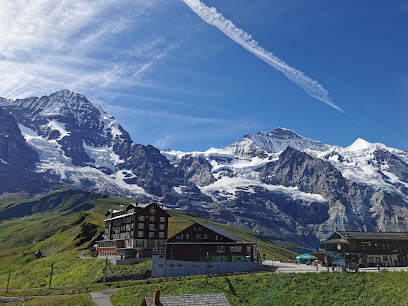
Restaurant Stägerstübli
Experience authentic Swiss cuisine amidst breathtaking alpine views at Restaurant Stägerstübli in Mürren.
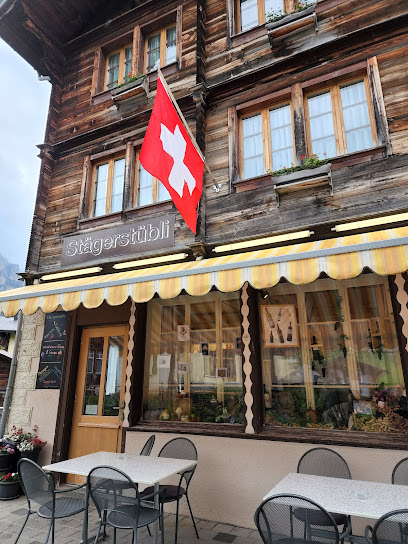
Restaurant Hotel Oberland
Experience authentic Swiss cuisine surrounded by breathtaking Alpine scenery at Restaurant Hotel Oberland in Lauterbrunnen.
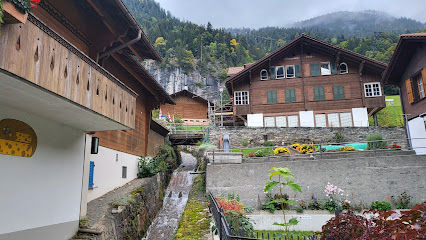
Restaurant Eigergletscher 2320 m
Experience exquisite Swiss cuisine at Restaurant Eigergletscher, where stunning alpine views meet culinary excellence in the heart of Jungfrau.
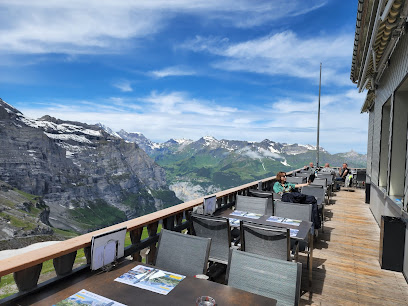
Jungfrau
Experience unparalleled Swiss hospitality at Jungfrau – where breathtaking scenery meets exquisite dining and cozy accommodations.
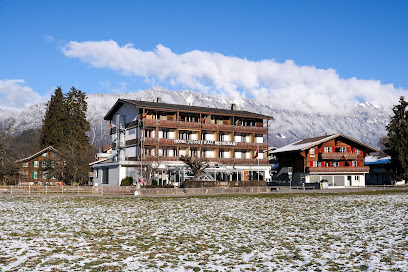
Bergrestaurant Bussalp
Experience authentic Swiss cuisine amidst breathtaking alpine views at Bergrestaurant Bussalp – where culinary delight meets nature's splendor.
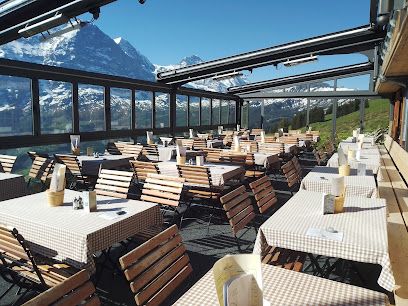
Hotel Restaurant Hirschen
Discover authentic Swiss hospitality at Hotel Restaurant Hirschen in Grindelwald - where comfort meets breathtaking alpine views.

Marmorbruch
Discover authentic Swiss cuisine at Marmorbruch in Grindelwald, where stunning mountain views meet delectable local flavors.
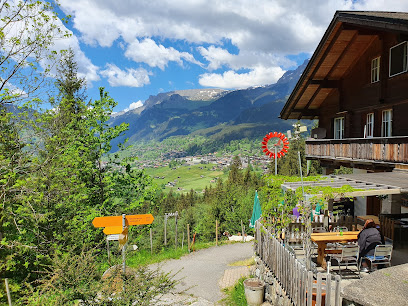
Hotel Restaurant Fiescherblick
Discover exquisite dining and cozy accommodations at Hotel Restaurant Fiescherblick in Grindelwald - where Swiss hospitality meets stunning alpine views.

La Terrasse
Experience exquisite Swiss cuisine at La Terrasse while enjoying stunning views of the iconic Jungfrau mountain.
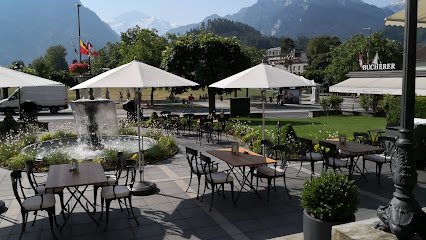
Restaurant Allmendhubel
Experience authentic Swiss cuisine at Restaurant Allmendhubel while enjoying stunning alpine views in Mürren.
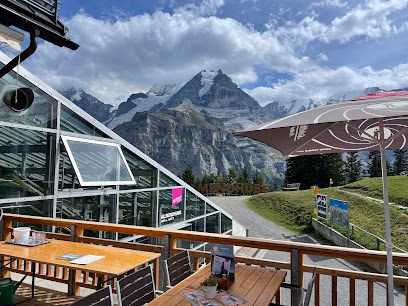
Markets, malls and hidden boutiques
Oberland Shopping
Experience the charm of Oberland Shopping Mall, a premier destination in Wilderswil offering a unique blend of retail, dining, and stunning alpine views.
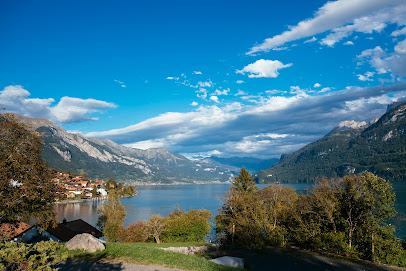
BÖDELI CENTER
Explore Bödel Center in Interlaken: your go-to discount supermarket and eclectic shopping haven for unique finds and local treasures.
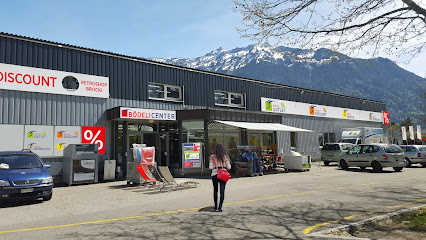
Läderach
Experience the rich flavors of Swiss chocolate at Läderach in Interlaken, where tradition meets exquisite craftsmanship.
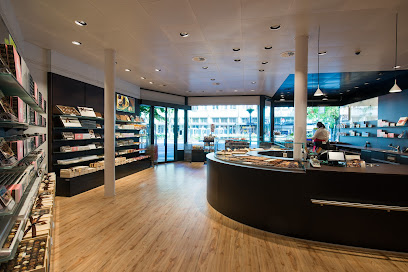
EigerBean The Coffee Roastery
Discover EigerBean, a top-notch coffee roastery in Grindelwald, offering exquisite brews and stunning alpine views for the ultimate café experience.
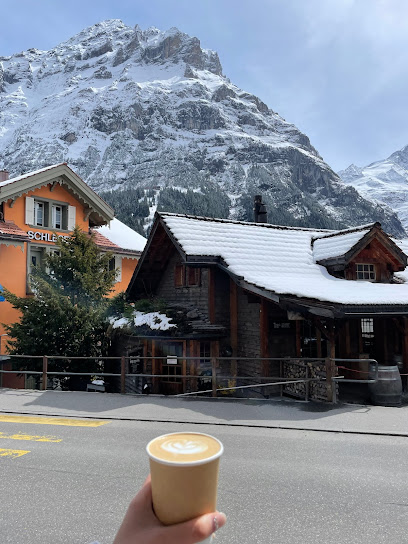
Splendid Interlaken
Explore Splendid Interlaken - Your ultimate shopping destination in Switzerland, blending local charm with modern retail experiences.
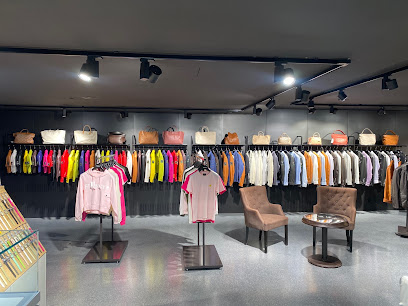
Top of Europe Flagship Store
Explore the Top of Europe Flagship Store in Interlaken for unique Swiss souvenirs, chocolates, and gifts that capture the essence of Switzerland.
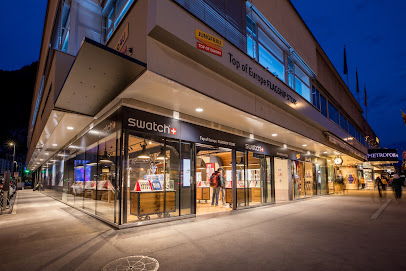
Kirchhofer – V-TIME
Explore exquisite timepieces at Kirchhofer – V-TIME, a premier watch store in scenic Grindelwald, where luxury meets craftsmanship.
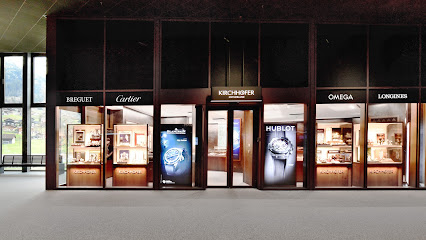
Backdoor Snowboard | Ski | Running Shop Grindelwald
Discover the ultimate winter sports experience at Backdoor Snowboard & Ski Shop in Grindelwald - your one-stop destination for skiing, snowboarding, and running gear.
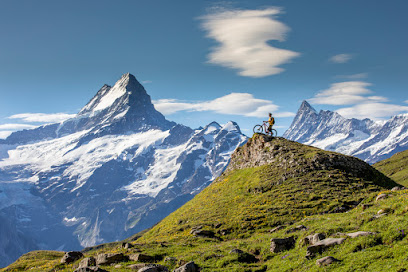
Lindt Chocolate Shop Jungfraujoch
Experience the irresistible taste of Swiss chocolate at the Lindt Chocolate Shop Jungfraujoch, surrounded by breathtaking alpine beauty.
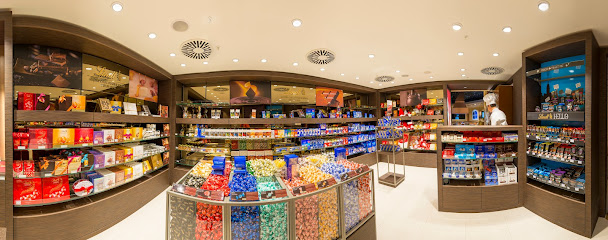
Heimatwerk Interlaken
Discover authentic Swiss crafts and souvenirs at Heimatwerk Interlaken, the perfect place to find unique gifts that embody Swiss culture and tradition.
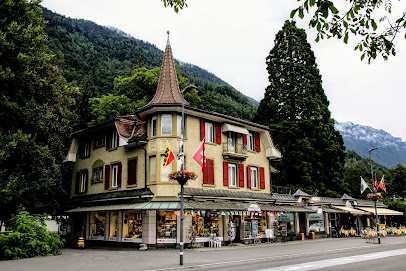
Kirchhofer – Lifestyle
Discover exquisite beauty products at Kirchhofer – Lifestyle in Interlaken, your ultimate destination for cosmetics and personal care in Switzerland.
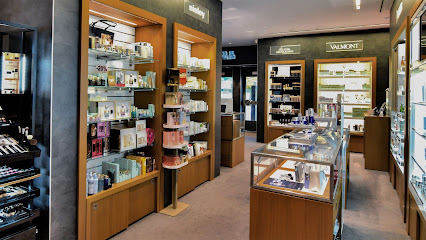
Lindt Chocolate Shop Grindelwald Terminal
Discover the exquisite world of Swiss chocolate at Lindt Chocolate Shop Grindelwald Terminal, where indulgence meets craftsmanship.
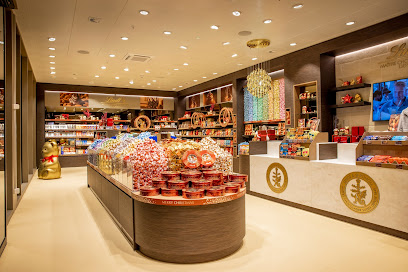
Bhend Papeterie Bürobedarf
Explore Bhend Papeterie Bürobedarf, a charming craft store in Interlaken offering quality office supplies, picture frames, and creative materials for every artist.
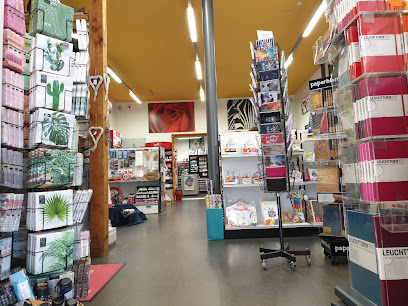
Edelweiss Shop - Swiss Souvenir, Schweizer Souvenirs, Souvenir Store - Interlaken
Shop for authentic Swiss souvenirs at Edelweiss Shop in Interlaken, offering a wide range of gifts that reflect the beauty and culture of Switzerland.
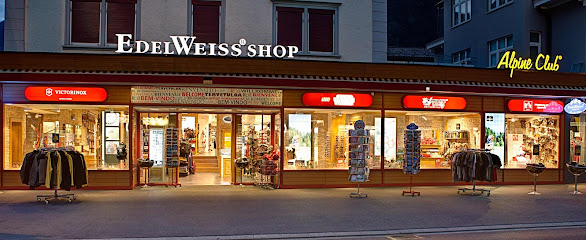
grindelwald talstation first
Experience the breathtaking beauty and adventure of Grindelwald Talstation First, your gateway to the Swiss Alps' stunning landscapes and outdoor activities.
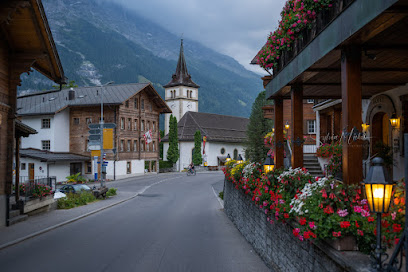
Essential bars & hidden hideouts
Avocado Bar Grindelwald
Experience the perfect blend of health and flavor at Avocado Bar Grindelwald, where delicious avocado dishes meet breathtaking alpine views.
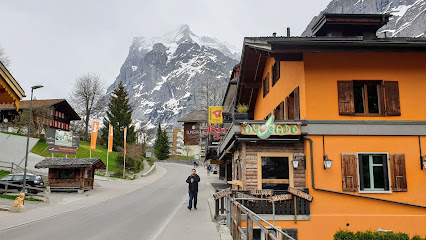
Crystal Bar
Discover the enchanting Crystal Bar in Wengen, where great wine, live music, and sports create an unforgettable alpine experience.
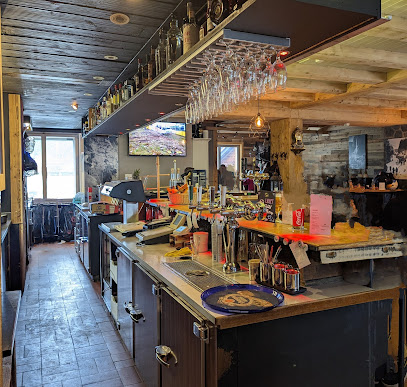
Espressobar
Discover the warmth and flavor of Espressobar in Grindelwald, where exceptional coffee meets breathtaking mountain views.
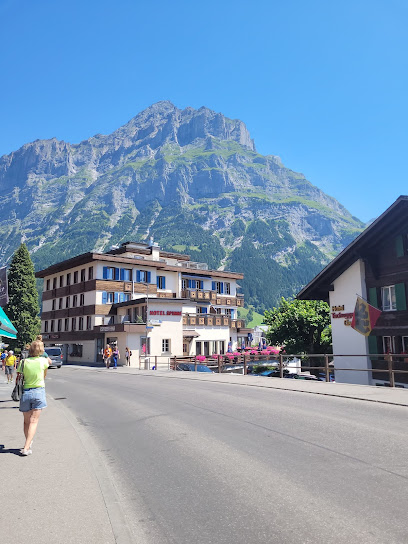
Bus Stop Bar
Experience the charm of the Swiss Alps at Bus Stop Bar in Grindelwald, where cozy ambiance meets stunning mountain views.
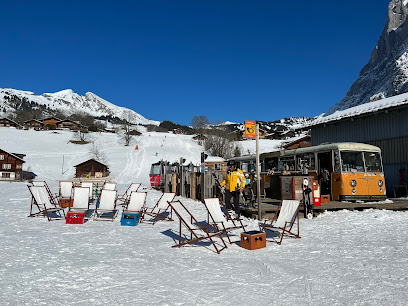
On the Rocks
Discover On the Rocks, a delightful bar in Wengen, offering stunning views, a warm atmosphere, and a wide selection of drinks amidst the Swiss Alps.
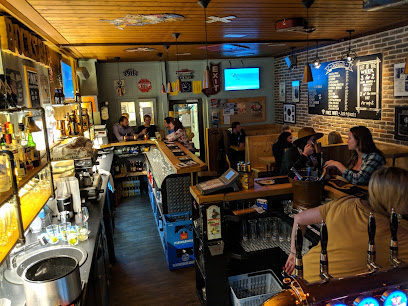
Tanne Bar Nelissen
Experience the charm of Tanne Bar Nelissen in Wengen, where refreshing drinks and stunning alpine views create an unforgettable atmosphere.
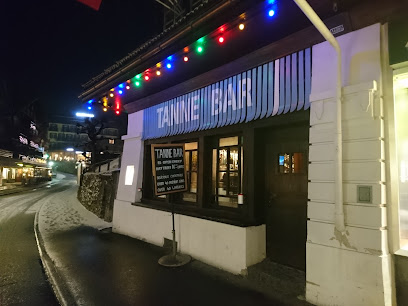
Hasenstall
Experience the vibrant nightlife of Wengen at Hasenstall, where stunning views and a lively atmosphere await every visitor.
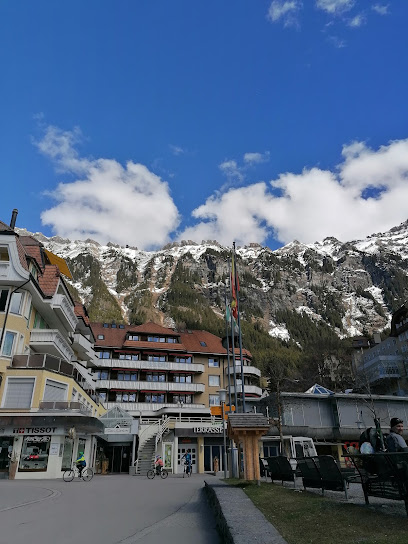
Gondelbar
Discover the charm of Gondelbar in Mürren, where breathtaking alpine views meet a cozy atmosphere and delightful beverages.
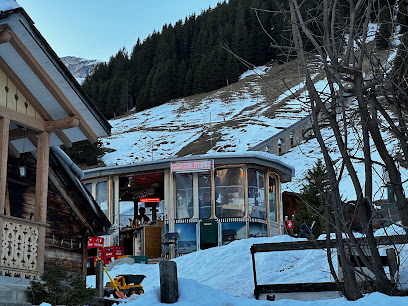
Eiger Lodge Grill·Bar
Experience the best of Swiss cuisine at Eiger Lodge Grill·Bar, where exceptional flavors meet breathtaking alpine views in Grindelwald.
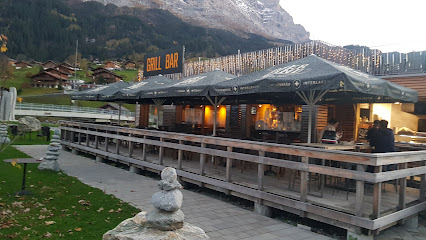
Schneebar Figeler
Experience the heart of Wengen at Schneebar Figeler, where great drinks meet breathtaking mountain views in a cozy alpine atmosphere.
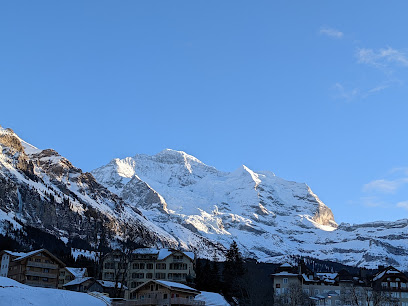
Trap Bar
Experience the warmth of Trap Bar in Unterseen, where cozy ambiance meets an extensive drink selection in the heart of Interlaken.
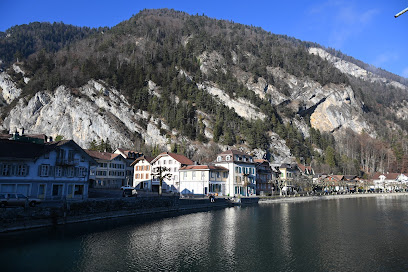
Holzerbar
Discover Holzerbar in Grindelwald – a cozy bar offering a warm atmosphere and exquisite local drinks amidst stunning alpine views.
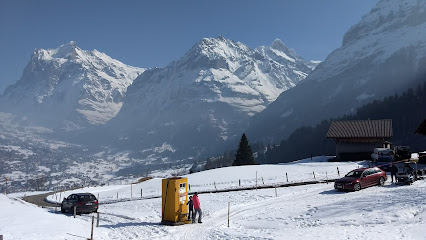
Skibar Schreinerei
Experience the flavors of Switzerland at Skibar Schreinerei, where culinary delight meets stunning alpine views in Lauterbrunnen.
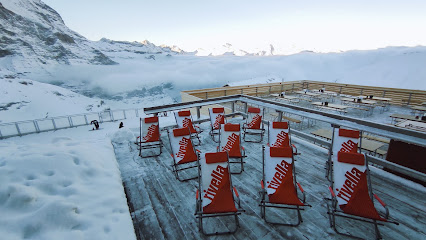
Pikantus Lounge by Erdinger
Discover the tranquil Pikantus Lounge at Jungfraujoch, where stunning views and refreshing drinks combine for a memorable alpine experience.
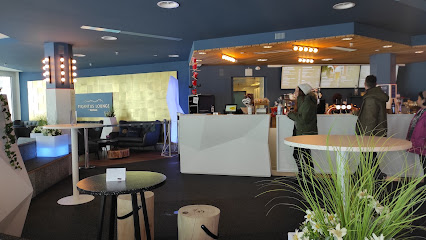
Local Phrases about Jungfrau Region
-
- HelloGrüezi
[grü-eh-tsi] - GoodbyeUf Widerluege
[oof-vee-der-loo-ge] - YesJa
[yah] - NoNei
[nye] - Please/You're welcomeBitte
[bi-teh] - Thank youMerci
[mer-see] - Excuse me/SorryEntschuldigung
[ent-shool-dee-gung] - How are you?Wie goots?
[vee-goh-ts] - Fine. And you?Guet. Und dir?
[gweht. oond deer] - Do you speak English?Redsch du Englisch?
[redsh doo eng-leesh] - I don't understandIch verstand nöd
[eekh fair-shtand nud]
- HelloGrüezi
-
- I'd like to see the menu, pleaseIch möcht gern d'Menükarte luege, bitte
[eekh murkht gehrn deh-meh-noo-kar-teh loo-geh, bi-teh] - I don't eat meatIch esse kein Fleisch
[eekh ess-eh kine flysh] - Cheers!Prost!
[prohst] - I would like to pay, pleaseIch möcht bitte zahle
[eekh murkht bi-teh tsah-leh]
- I'd like to see the menu, pleaseIch möcht gern d'Menükarte luege, bitte
-
- Help!Hilf!
[helf] - Go away!Gang wäg!
[gahng vehg] - Call the Police!Ruf d'Polizei!
[roof deh-poh-lee-tsey] - Call a doctor!Ruf e Dokter!
[roof eh dohk-ter] - I'm lostIch ha mi verlaufe
[eekh hah mee fair-low-feh] - I'm illIch bin krank
[eekh been krunk]
- Help!Hilf!
-
- I'd like to buy...Ich möcht ... kaufe
[eekh murkht ... kow-feh] - I'm just lookingIch luege nur
[eekh loo-geh noor] - How much is it?Was choschtet das?
[vahs khoshtet dahs] - That's too expensiveDas isch z' teuer
[dahs ish tsoy too-ehr] - Can you lower the price?Chasch du de Priis reduziere?
[khahsh doo deh prees reh-doo-tsee-reh]
- I'd like to buy...Ich möcht ... kaufe
-
- What time is it?Wieviel Uhr isch es?
[vee-vee-el oor ish es] - It's one o'clockEs isch eini
[ehs ish eye-nee] - Half past (10)Halbi zehni
[hahl-bee tseh-nee] - MorningMorge
[mohr-geh] - AfternoonNamittag
[nah-mee-tahg] - EveningAbig
[ah-beek] - YesterdayGestern
[geh-shtern] - TodayHüt
[hoot] - TomorrowMorn
[mohrn] - 1Eins
[eyns] - 2Zwei
[tsv-eye] - 3Drei
[drey] - 4Vier
[feer] - 5Fünf
[foonf] - 6Sechs
[zeks] - 7Sieben
[zee-ben] - 8Acht
[ahkt] - 9Neun
[noyn] - 10Zehn
[tsehn]
- What time is it?Wieviel Uhr isch es?
-
- Where's a/the...?Wo isch ...?
[voh ish] - What's the address?Was isch d'Adresse?
[vahs ish dah-dreh-suh] - Can you show me (on the map)?Chasch mir's zeige (uf em Plan)?
[khahsh meerz tsigh-eh (oof em plahn)] - When's the next (bus)?Wänn fahrt de nächschti (Bus)?
[ven fahrt deh naih-khstee (boos)] - A ticket (to ....)E Billett (nach ....)
[eh bih-leht (nahkh ....)]
- Where's a/the...?Wo isch ...?
History of Jungfrau Region
-
The Jungfrau Region has been inhabited since prehistoric times. Evidence of ancient settlements has been found in various locations, suggesting that early humans found the fertile valleys and abundant resources ideal for living. Archeological discoveries include tools, pottery, and remnants of early dwellings.
-
During the medieval period, the Jungfrau Region was part of the Holy Roman Empire. It was characterized by small, self-sufficient farming communities. The construction of castles and fortifications during this time reflects the region's strategic importance. The town of Interlaken, originally called 'Aarmühle,' began to grow as a center of trade and commerce.
-
The 19th century marked the beginning of significant Alpine exploration in the Jungfrau Region. Adventurers and scientists from Europe and beyond began to explore the high peaks and glaciers. The first successful ascent of the Jungfrau summit was recorded in 1811 by the Meyer brothers, who paved the way for future mountaineers.
-
The arrival of the railway in the late 19th century transformed the Jungfrau Region into a major tourist destination. The construction of the Jungfrau Railway, which opened in 1912, was a monumental engineering feat, allowing visitors to ascend to the Jungfraujoch, known as the 'Top of Europe.' This period saw the establishment of grand hotels and resorts catering to tourists from around the world.
-
The Jungfrau Region is rich in Swiss cultural traditions. Alpine farming, cheese-making, and woodcarving are still practiced today. Traditional events such as the Unspunnenfest, a festival celebrating Swiss heritage with wrestling, stone-throwing, and folk music, continue to attract visitors. The region's folklore and legends are also an integral part of its cultural identity.
-
During World War II, Switzerland maintained its neutrality, but the Jungfrau Region was not untouched by the conflict. The Swiss Army fortified the area, and the rugged terrain served as a natural defense. The region's strategic significance was underscored by its proximity to the Axis powers, and local communities were involved in various defense and civil protection efforts.
-
In recent decades, the Jungfrau Region has continued to evolve. Investments in infrastructure, such as modern ski lifts and sustainable tourism initiatives, have ensured that it remains a top destination for outdoor enthusiasts. The region has also embraced environmental conservation efforts to preserve its stunning landscapes for future generations.
Jungfrau Region Essentials
-
The Jungfrau Region is located in the Bernese Oberland of Switzerland. The nearest major international airport is Zurich Airport (ZRH), approximately 130 kilometers away. From Zurich, you can take a direct train to Interlaken, which is the gateway to the Jungfrau Region. The train journey typically takes about 2 hours. Alternatively, you can also fly into Geneva Airport (GVA) or Basel Airport (BSL) and take a train to Interlaken. From Interlaken, regional trains and buses connect to various towns and villages in the Jungfrau Region, including Lauterbrunnen, Grindelwald, and Wengen.
-
The Jungfrau Region is well-connected by an extensive network of trains, buses, and cable cars. The Swiss Travel Pass is highly recommended for tourists, as it offers unlimited travel on the Swiss Travel System network, including trains, buses, and boats. For local travel, the regional Bernese Oberland Pass is also a good option. Renting a car is possible, but not necessary, as public transport is efficient and covers most attractions. Additionally, many areas, such as Wengen and Mürren, are car-free zones and can only be accessed by train or cable car.
-
The official currency in Switzerland is the Swiss Franc (CHF). Credit and debit cards are widely accepted in hotels, restaurants, and shops. It is advisable to carry some cash for smaller establishments, market stalls, and rural areas where card payments might not be accepted. ATMs are readily available in towns and villages throughout the Jungfrau Region, allowing you to withdraw Swiss Francs as needed.
-
The Jungfrau Region is generally very safe for tourists. Switzerland has a low crime rate, and violent crime is rare. However, standard precautions should be taken, such as keeping an eye on personal belongings in crowded areas and avoiding leaving valuables unattended. There are no specific high-crime areas targeting tourists in the Jungfrau Region. Nonetheless, it is always prudent to stay vigilant and aware of your surroundings.
-
In case of emergency, dial 112 for immediate assistance. This number connects you to emergency services, including police, ambulance, and fire brigade. The region has several medical facilities and pharmacies in towns like Interlaken and Grindelwald. It is recommended to have travel insurance that covers medical emergencies and adventure activities, especially if you plan to engage in outdoor pursuits like hiking or skiing.
-
Fashion: Do dress in layers and wear comfortable, weather-appropriate clothing, especially if you plan on hiking or engaging in outdoor activities. Avoid overly casual attire in fine dining establishments. Religion: Do respect local customs and traditions. While Switzerland is largely secular, it is courteous to dress modestly when visiting churches. Public Transport: Do be punctual and respect the quiet nature of Swiss public transport. Don't eat or drink on public transport unless it is permitted. Greetings: Do greet people with a polite 'Grüezi' or 'Bonjour' depending on the region. A firm handshake is also a common greeting. Eating & Drinking: Do try local delicacies and Swiss specialties. Don't rush through meals; dining is often a leisurely experience in Switzerland.
-
To experience the Jungfrau Region like a local, consider visiting during the shoulder seasons (late spring and early autumn) when the area is less crowded. Take advantage of the numerous well-marked hiking trails, and don't miss the opportunity to ride the Jungfrau Railway to the 'Top of Europe.' Engage with locals in smaller villages for a more authentic experience, and try local foods such as raclette and fondue. Additionally, attending local festivals and events can provide unique insights into the region's culture and traditions.
Trending Landmarks in Jungfrau Region
-
Jungfraujoch Sphinx Observatory
-
Thrill Walk, Birg
-
Jungfraujoch
-
Jungfrau
-
JungfrauPark Interlaken
-
Männlichen
-
Jungfrau Ski Region - Kleine Scheidegg - Männlichen - Wengen
-
Jungfrau-Aletsch-Bietschhorn
-
First Cliff Walk
-
Royal walk
-
Jungfraujoch Plateau
-
Ice Palace Jungfraujoch
-
Jungfrau Region Tourism
-
TOURISMUSEUM
-
Jungfrau mit Eiger und Mönch-Aletschgletscher-Bietschhorn
Nearby Cities to Jungfrau Region
-
Things To Do in Grindelwald
-
Things To Do in Interlaken
-
Things To Do in Thun
-
Things To Do in Zermatt
-
Things To Do in Bern
-
Things To Do in Lucerne
-
Things To Do in Ascona
-
Things To Do in Locarno
-
Things To Do in Montreux
-
Things To Do in Vevey
-
Things To Do in Lugano
-
Things To Do in Lausanne
-
Things To Do in Zurich
-
Things To Do in Basel
-
Things To Do in Balzers













